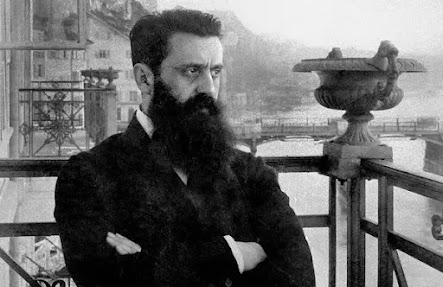On April 30, 1948, a momentous event in the history of the Middle East took place as Palestinian Jews declared their independence from British rule, marking the establishment of the modern State of Israel.
A long-awaited dream for many Jews who had faced centuries of persecution came to fruition. Just two weeks later, on May 14, 1948, Jewish Agency Chairman David Ben-Gurion proclaimed the formal founding of the State of Israel in Tel Aviv, heralding the first Jewish state in over two millennia.The declaration of independence came at a time of tumultuous unrest. Fighting had erupted between Jews and Arabs after the British army withdrew earlier that day, setting the stage for the Arab nations to invade Israel. Egypt launched an airstrike against the new nation the evening of the declaration.
Despite these dire circumstances and the blackout in Tel Aviv, the Jewish population celebrated the birth of their nation with optimism, bolstered by news that the United States had officially recognized Israel as a sovereign state. As the British Mandate over Palestine ended at midnight, the State of Israel was born amidst a mixture of euphoria and fear.
The modern State of Israel has its roots in the Zionist movement, which emerged in the late 19th century among Jews in the Russian Empire. Zionism was an ideological response to the relentless persecution and anti-Semitism that Jews had suffered for centuries. The movement called for the establishment of a Jewish state, offering an escape from oppression and providing a safe haven for Jews worldwide.
Theodor Herzl, a Jewish-Austrian journalist, became the foremost advocate of Zionism with his 1896 publication The Jewish State. Herzl argued that the establishment of a Jewish homeland was the only way to protect Jews from the rising tide of anti-Semitism in Europe. He convened the first Zionist Congress in Basel, Switzerland, in 1897, where the movement gained widespread support. Herzl's vision focused on Palestine as the ideal location for a Jewish state, citing it as the ancestral homeland of the Jewish people.
Despite his efforts, Herzl's attempt to gain a charter from the Ottoman Empire for a Jewish homeland in Palestine was unsuccessful. However, the collapse of the Ottoman Empire during World War I created new opportunities.
With British forces gaining control of Palestine, the British government issued the Balfour Declaration in 1917, which expressed support for the establishment of a Jewish national home in Palestine. This declaration was incorporated into the League of Nations' mandate for British rule over Palestine in 1922.
As the 20th century progressed, waves of Jewish immigrants began arriving in Palestine, particularly from Eastern Europe and Russia. By the late 1920s, tensions between Jews and Arabs in Palestine escalated. While the British sought to balance the needs of both groups, they struggled to contain the rising violence. Jewish groups advocated for increased immigration, particularly in the wake of the atrocities of the Holocaust, while Arabs strongly opposed the influx of Jewish settlers.
In response to mounting violence and unrest, Britain attempted to limit Jewish immigration, but the policies were met with resistance from Zionist groups. After World War II, the horrors of the Holocaust galvanized international support for the establishment of a Jewish state. Jewish paramilitary groups in Palestine intensified their resistance to British rule, employing violent tactics against British forces in an effort to expedite the creation of Israel.
In 1945, the United States began to take up the Zionist cause, marking a shift in international dynamics. Unable to find a solution to the escalating conflict, Britain referred the issue to the newly-formed United Nations.
In November 1947, the UN voted to partition Palestine into separate Jewish and Arab states, with Jerusalem placed under international administration. The Jews accepted the plan, which allocated them over half of the land, despite constituting less than half of the population. The Palestinian Arabs rejected the partition, and tensions between the two groups deepened.
By the time of the British withdrawal on May 14, 1948, the Jewish forces had secured control over the area allocated to them by the UN, along with additional territories. The day after the declaration of the State of Israel, a coalition of Arab nations, including Egypt, Jordan, Syria, Lebanon, and Iraq, launched a military invasion to prevent the establishment of a Jewish state. The ensuing conflict, known as the 1948 Arab-Israeli War or the War of Independence, saw Israel's fledgling military forces battle the better-equipped Arab armies.
Despite being outnumbered and less equipped, the Israelis held their ground, thanks in part to the determination of their forces and logistical support from the Jewish diaspora, particularly from the United States. After months of fighting, Israel not only defended its sovereignty but also expanded its territory. By 1949, the United Nations brokered ceasefires, solidifying Israel’s control over its initial territory, including strategic areas like Galilee, the Palestinian coastline, and parts of Jerusalem.
The war resulted in a dramatic shift in the region’s demographics. Hundreds of thousands of Palestinian Arabs were displaced, many of whom fled or were expelled from their homes in what is now Israel. The refugee crisis that followed would become a core issue in the Israeli-Palestinian conflict, with Palestinian refugees and their descendants continuing to seek a resolution to their plight.
Despite the hardships, Israel's survival in its early years was a testament to the resilience of its people and the viability of the Zionist dream. The newly-established state quickly became a refuge for Jews worldwide, particularly for survivors of the Holocaust. As a result, Israel's population grew rapidly, and the country began to establish itself as a strong military and economic power in the Middle East.
The founding of Israel in 1948 marked the culmination of decades of struggle and aspirations for a Jewish homeland, but it also set the stage for enduring conflict. In subsequent years, Israel’s borders expanded after the Six-Day War of 1967, and the country has continued to navigate the complex relationships with its Arab neighbors and the Palestinian population.
Today, Israel stands as a major geopolitical player in the Middle East, but its history and the ongoing Israeli-Palestinian conflict serve as a constant reminder of the challenges that accompany the founding of a nation. The legacy of 1948—the aspirations, the sacrifices, and the ongoing disputes—remains a defining element of Israel’s identity and its future trajectory.










No comments:
Post a Comment